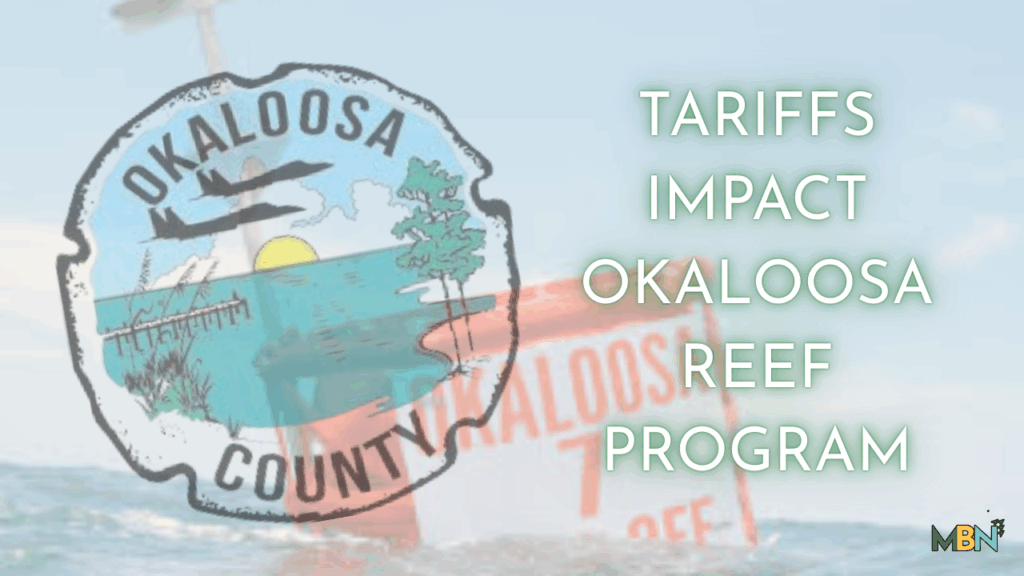
Tariff risk: Japanese-made buoys for Okaloosa’s reef program could cost $41,760 more if U.S. import tariffs remain in place.
🌊 Proven design: The county is sticking with Okabe-designed devices that have survived Gulf conditions since 2020.
📅 Deadline looming: The new buoys must be deployed offshore by March 1, 2026.
(Editor’s Note: This article has been updated with information following a conversation with an Okaloosa County spokesperson.)
SHALIMAR — The Okaloosa County Commission on Tuesday approved a $41,760 change order with Walter Marine LLC to account for potential tariffs on Japanese-manufactured materials needed for the county’s fish aggregating device (FAD) program.
The item was passed as part of the board’s consent agenda.
The adjustment raises the contract for the project from $513,000, which the commission approved in July, to $554,760.
It applies only to the imported buoys themselves, and the extra cost will only be incurred if tariffs remain in place when the shipment arrives at a U.S. port.
The FAD initiative builds on the county’s 2020 deployment of eight Okabe-designed FADs, placed 60 to 80 miles offshore. Staff said those buoys have withstood the Gulf’s harsher seas without failure, unlike alternative models deployed in neighboring communities.
“It is in the best interest of the County to contract with Walter Marine to deploy a buoy and mooring system that has a track record for success,” staff wrote, noting the devices are manufactured specifically for durability and long-term use.
Because the Okabe buoys are manufactured in Japan, they fall under recently imposed U.S. tariffs on Japanese imports. A July 2025 trade agreement between the two countries set a 15% tariff rate on Japanese goods, down from a threatened 25% requested initially by the Trump Administration.
County documents note that the Japanese manufacturer will not begin construction without assurances that any tariffs due will be covered, creating uncertainty around the final cost.
“It’s unknown whether the tariffs will still be in place at the time the FADs arrive at U.S. port, or whether the tariffs remain at their current rate,” staff explained.
The change order also updates the funding source, moving the expense from the county’s depleted first-penny artificial reef funds to another account within the tourism department.
The project is time sensitive, with a March 1, 2026, deadline for deployment.
Register or login with Mid Bay News and never get another pop up on our site!